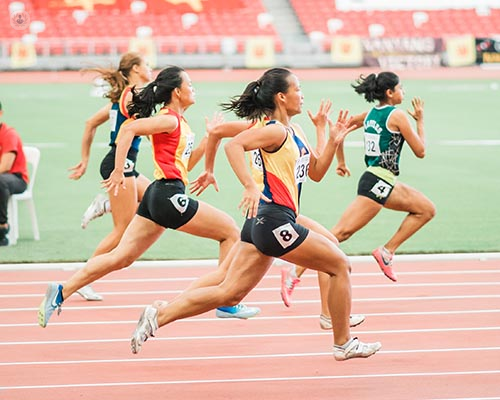An in-depth analysis of sports massage: part 1
Autore:Sports massage is a specialised form of massage therapy tailored to the unique needs of athletes and individuals who regularly engage in physical activity. In the first article of a two-part series, esteemed osteopath Anastasia Borisova explains the benefits of sports massage and its influence on athletic performance.
Who Can Benefit from Sports Massage?
Athletes: sports massage is especially beneficial for athletes, whether they are professionals or amateurs. It aids in performance improvement, post-exertion recovery, and injury risk reduction. During competition and training, athletes often push their bodies to the limit, and sports massage is a valuable tool for enhancing their physical well-being.

Recreational exercisers: individuals participating in regular physical activities, such as jogging, cycling, weightlifting, or any form of exercise, can also reap the rewards of sports massage. It assists in preventing muscle imbalances, accelerating recovery, and contributing to overall physical health.
Non-Athletes: even if you don't consider yourself an athlete or exercise enthusiast, sports massage can still provide benefits. It is effective in alleviating muscle tension, discomfort, and soreness, whether resulting from various activities or the stresses of daily life.
Age Considerations: sports massage is adaptable to different age groups, from adolescents to older adults. However, the intensity and techniques applied may vary according to age and activity level. Consulting with a qualified therapist ensures a massage tailored to individual needs.
Medical Conditions: if you have specific medical conditions, it is essential to discuss them with your healthcare provider and the massage therapist. In some cases, adjustments or modifications may be required to ensure the massage is safe and effective.
Pregnancy: pregnant individuals can benefit from prenatal sports massages designed to cater to the specific needs and comfort of expectant mothers. However, it's vital to work with a therapist experienced in prenatal massage to ensure the safety and well-being of both the mother and the baby.
Medical history: anyone wishing to undergo sports massage should inform their massage therapist of their medical history, including past surgeries or injuries, before undergoing treatment. This information enables the therapist to tailor the treatment considering any previous injuries or surgical interventions that may impact the massage approach.
What are the signs that I need a sports massage?
There are several indicators that suggest the need for a sports massage, which are as follows:
Muscle tension and soreness: Persistent muscle tightness, soreness, or the presence of knots in specific muscle groups may indicate the need for a sports massage. These issues can result from overuse, muscle imbalances, or strenuous physical activity.
Reduced range of motion: Difficulty moving a joint through its full range of motion can suggest muscle or joint restrictions. Sports massage can target these restrictions, improving mobility and function.
Injury prevention: athletes may consider sports massage in order to prevent injuries. By addressing muscle imbalances, areas of weakness, and tight muscles, a sports massage can reduce the risk of injuries during training or competition.
Recovery: after intense training sessions or sporting events, athletes often experience muscle soreness and fatigue. Sports massage can aid in post-event or post-workout recovery, reducing soreness and speeding up the body's natural healing processes.
Stress relief: physical activity, especially at a competitive level, can be mentally and emotionally taxing. Sports massage can promote relaxation and reduce stress, in turn, benefiting an athlete's overall well-being.
What are the benefits of sports massage?
Sports massage offers numerous advantages for athletes and physically active individuals:
Enhanced circulation: sports massage can improve blood flow, which aids in the delivery of oxygen and nutrients to muscles, as well as the removal of waste products such as lactic acid. This enhanced circulation contributes to muscle function and recovery.
Pain reduction: sports massage is effective in alleviating muscle pain and discomfort. It targets areas of tension and releases tight muscles, providing relief and promoting comfort.
Increased flexibility: by addressing muscle tightness and knots, sports massage can improve flexibility and range of motion. Enhanced flexibility is vital for preventing injuries and maintaining optimal performance.
Injury prevention: regular sports massage can identify and address potential issues before they lead to injuries. It assists in maintaining muscle balance, which is essential for injury prevention.
Faster recovery: after intense training or competition, sports massage can expedite the recovery process. It reduces muscle soreness, inflammation, and recovery time, allowing athletes to return to their activities more quickly.
Mental relaxation: beyond the physical benefits, sports massage also promotes mental relaxation. The calming effect of massage can reduce stress and anxiety, enhancing an athlete's mental state, focus, and overall performance.
If you would like to book a consultation with Ms Borisova, do not hesitate to do so by visiting her Top Doctors profile today.



